Case Study Planted
Based in Kemptthal and founded in 2019 as a spin-off from university ETH Zurich, the company produces plant-based meat from alternative proteins such as peas, sunflowers, oats, and other purely natural ingredients. When it develops its new products, Planted puts its trust in constant climate chambers from BINDER. They are used from the basic research phase and product development all the way to upscaling in order to achieve optimum product results.
Extrusion and fermentation
Consumers have high demands when it comes to plant-based meat products: They want them to look and taste like animal meat, replicate its texture, and be both tasty and healthy. To achieve this, Planted uses various technologies, such as extrusion and fermentation, to produce its products.
Extrusion is a method that has been used in the food industry since the 1960s to manufacture snacks, cereals, and pasta. Extrusion technology enables plant proteins, which are spherical at the microscopic level, to be transformed into a fibrous, elongated shape like animal muscle fibers.
Fermentation has a long tradition in food production and is used, for example, to make beer, salami, or sauerkraut. In these kinds of food, fermenting the raw materials microbes such as yeast fungi or bacteria improves both the taste and texture, while also increasing food safety and its nutritional value.
By using extrusion and conventional fermentation techniques, Planted is able to produce plant-based pieces of meat that have a complex texture, appeal to the taste buds, and are both juicy and tender.
The step-by-step guide to the perfect plant-based meat product
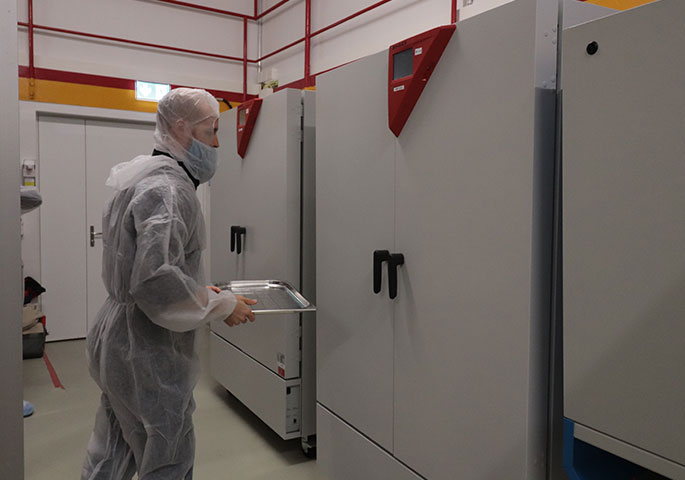
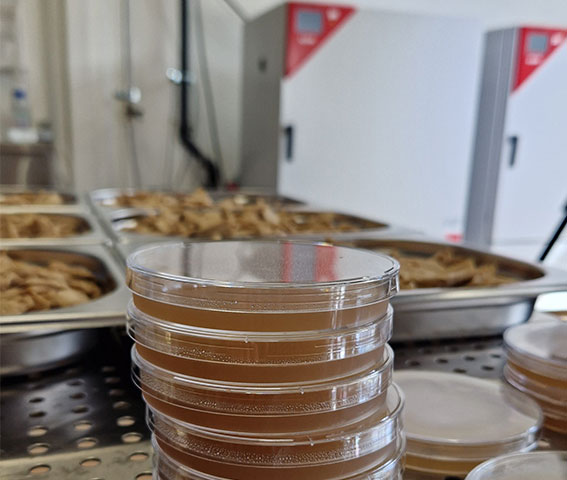
Fermentation plays a crucial role when developing plant-based meat products. This is where the constant climate chambers from BINDER come in: They help find the way to optimum fermentation and ultimately to the perfect product.
As a first step, it is essential to find out which microorganisms are most suitable for the fermentation process. To do this, various microorganisms, such as yeast fungi or bacteria, are first tested in combination with different raw materials. To carry out this work, Planted requires a climate chamber that is capable of handling a wide range of temperatures and humidity levels. The microorganisms are fermented in the chamber and selected based on the results. In the BINDER KMF constant climate chamber, the fermentation parameters can be precisely set and controlled in a broad temperature and humidity range. “The breadth of process parameters we are able to set is what won us over,” says Colin Kofmel, a biotech scientist at Planted. “The option to test fermentations at high humidity levels, for example, was a crucial factor for us.”
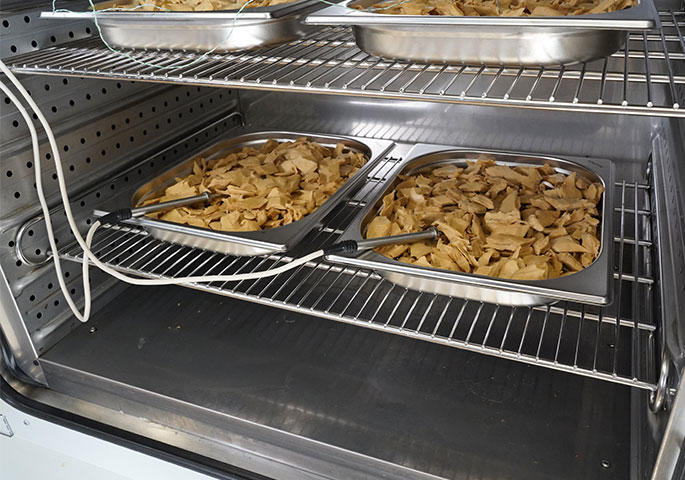
Efficient time management with KMF constant climate chambers from BINDER
Once the right microorganism has been found, the next step is to tailor the fermentation process precisely to this particular microorganism. To do this, various temperatures, humidity levels, and air velocities are tested out. The precise fermentation time also has to be determined. The ability to program the KMF helps here, as it enables different fermentation periods to be tested easily. “The ability to program the chamber and the option to cool it down to -10 degrees Celsius allow us to carry out fermentations flexibly and at any time of day or night,” explains Colin Kofmel. “For example, fermentations that are completed in the middle of the night can be cooled to 1 degree Celsius, meaning that we don’t need a member of staff to be on site to stop the fermentation. This massively increases our flexibility in terms of time and also allows us to run more trials each week.”
Once the conditions for the fermentation process have been established, it is then time to move on to upscaling. This involves scaling the basic process defined in the laboratory so that large quantities can be produced outside the laboratory environment. The KMF has an important role to play here too. It can be used to simulate the fermentation conditions of other units that are to be deployed later on in the production process. This makes it possible to define the required properties of the units used for upscaling new fermentation technologies and to find the unit that is best suited to the particular process.
Planted also uses the KMF constant climate chambers for processes other than fermentation to test what influence heat has on the taste and texture of the plant-based meat products. This is important in particular to imitate and simulate process curves, but also to determine shelf life and storage conditions.
Requirements:
- Suitability for the fermentation of raw food materials
- Wide range of incubation parameters, particularly regarding temperature and relative humidity
- Temperature range from 0 to 98 degrees Celsius, humidity range from 15 to 98 percent RH
- Precise parameter control and adjustment
- Programming options
- Precise process simulation
- Heating to 98 degrees Celsius and high humidity for decontamination
- Access port to introduce sensors, instrumentation, and other equipment into the unit
User
Planted Foods AG
Kemptpark 32/34
8310 Kemptthal / Switzerland
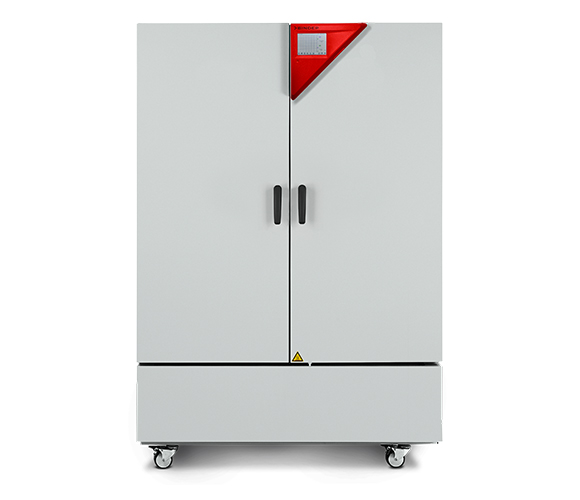
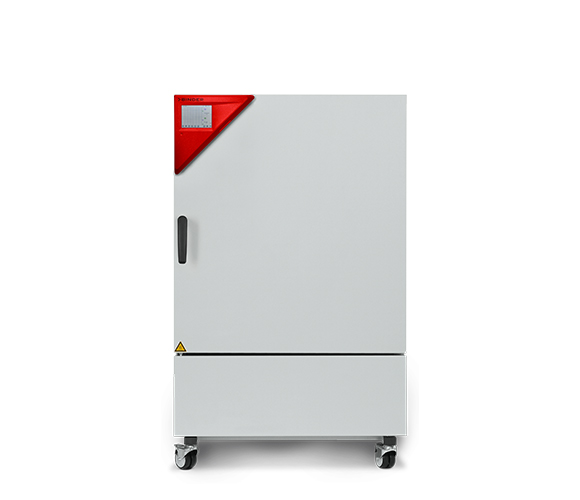
BINDER solution
- KMF 720 and KMF 240 constant climate chambers
- Temperature range: -10 to +100 degrees Celsius
- Humidity range: 10 to 98 percent RH
- Humidity regulation with capacitive humidity sensor and steam humidification
- Intuitive touchscreen controller with time-segment and real-time programming
- Access port with silicone plug: 30 millimeters